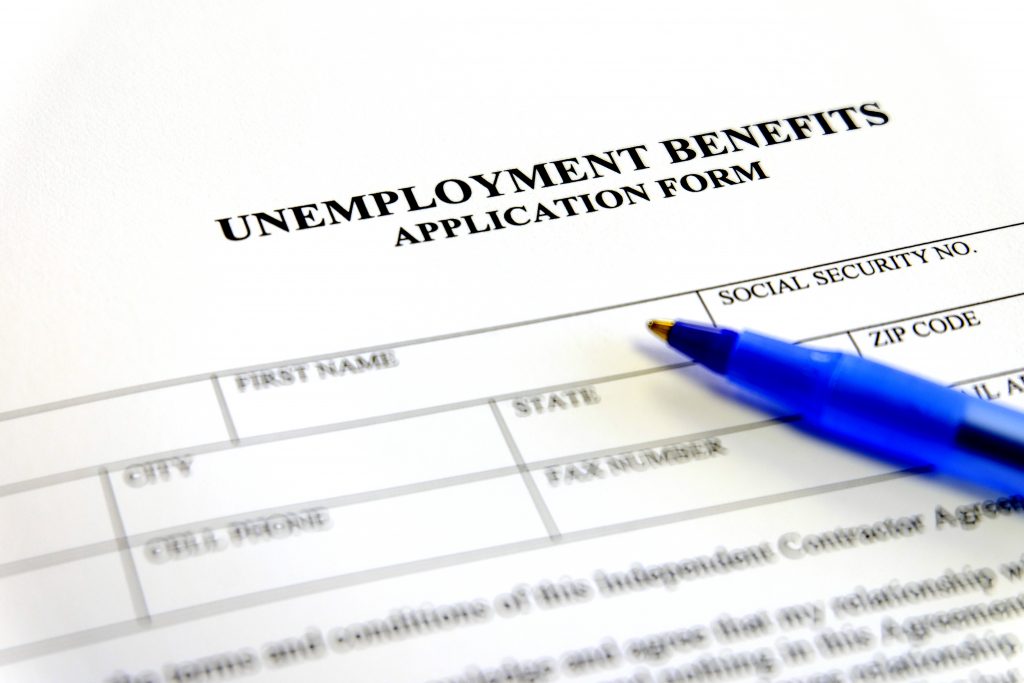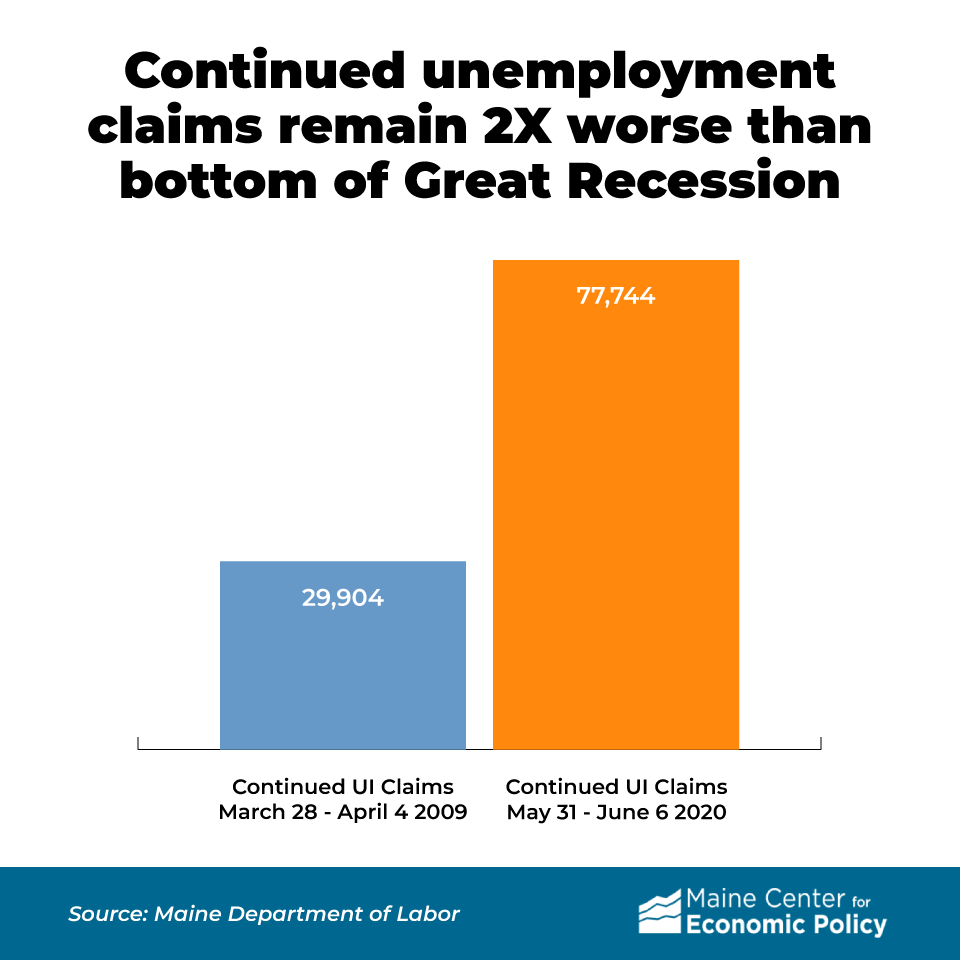While the latest data on Maine unemployment claims show some reason for hope, Maine’s unemployment levels remain at unprecedented levels three months after the coronavirus pandemic sent Maine’s economy into a tailspin. Additional policy action will be necessary to straighten the wheel and get the economy back on track.
In the week ending June 6, roughly 78,000 Mainers received state unemployment benefits, according to the latest data release form the Maine Department of Labor. That figure is down significantly from the previous week, when 162,000 payments were made. However, it is still astronomical by any usual standard, even when compared to previous recessions.
For example, claims today are more than 15 times higher than they were during the same period last year, when just under 5,000 Mainers collected state unemployment benefits. Continued claims today are also twice what they were in the week ending April 4, 2009, during the worst point of the Great Recession.
Approximately 5,400 Mainers filed new claims for unemployment compensation in the week ending June 6, either through the regular state unemployment program or the temporary federal Pandemic Unemployment Assistance program. Despite being the lowest number of new claims filed since the week ending March 28, this still represents more than five times as many initial weekly claims as the pre-pandemic average.
Despite the still sky-high unemployment figures, there are signs of improvement: Maine DOL has noted that the previous weekly high of 162,000 continued claims was likely inflated as a result of fraudulent claims — the result of a coordinated, criminal attack on the UI system. (Maine DOL cancelled 16,800 weekly certifications for the week ending May 30 as part of its investigation.) Maine’s decline in unemployment filings also tracks national data; The US Department of Labor recently found that national jobs numbers rebounded slightly in May after a plunge in April. The Census Bureau’s weekly pulse survey for households has also shown a significant reduction in the number of Mainers out of work due to COVID-19 in recent weeks.
But if late May and early June do mark an inflection point, or the beginning of an economic recovery, policymakers should be cautious not to celebrate too soon. Many experts believe the recovery will be long and slow. The Congressional Budget Office, for example, recently predicted that the unemployment rate would be as high as 8.6 percent at the end of 2021.
The recovery will be especially difficult if federal lawmakers end economic relief prematurely. The tens of thousands of Mainers collecting unemployment benefits are receiving an additional $600 per week on top of the usual state benefit which averages just $350 a week. This extra payment is preventing many from falling into severe economic hardship, but it expires July 31.
Congress must extend the unemployment boosts it enacted in March, otherwise tens of thousands of Mainers could be pushed over an economic cliff, the effects of which will ripple through the economy through reduced consumer activity and additional layoffs as businesses scale down operations.





